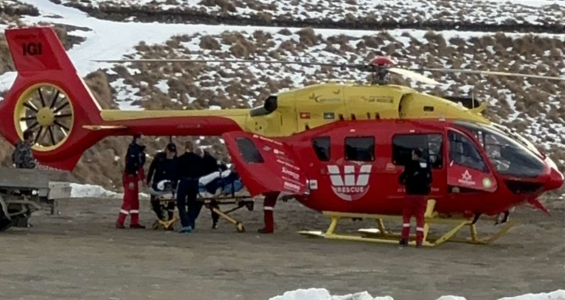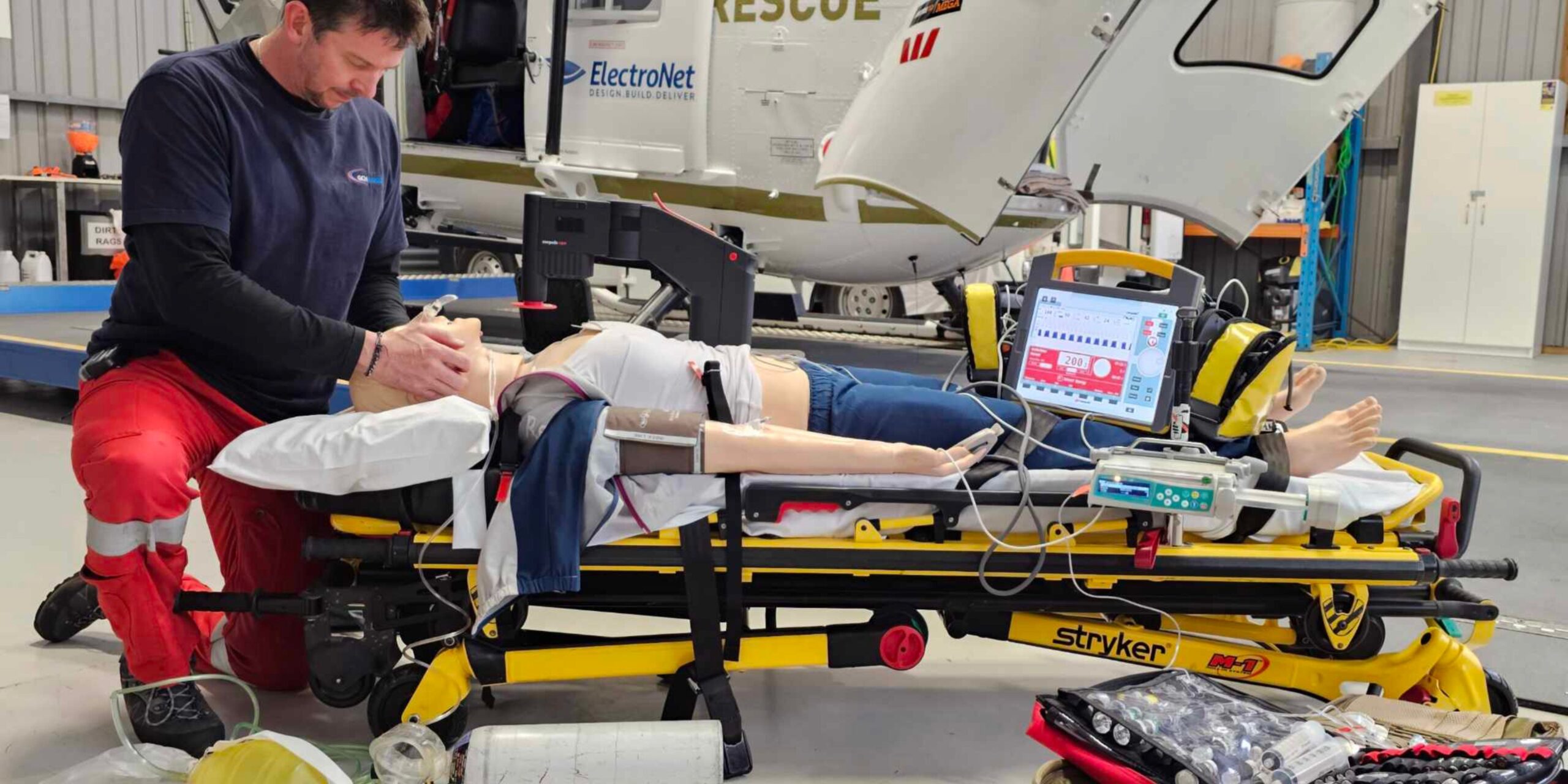A promotion to a “desk job” is what prompted Joshua to start the job hunt and he found his perfect role, and his wife, on the West Coast. We chat to flight crew paramedic Joshua about the job and calling the West Coast home.
What were you doing before you started work on the rescue helicopter?
I was in the Air Force for 12 years as a medic working in primary health and aero medical roles. I moved around a lot, bouncing between Blenheim, Christchurch and, most recently, Palmerston North.
I was then promoted but found myself stuck doing desk work. I started looking for a position where I could use more of my training. That’s when I saw the job on the West Coast ROA Mining Rescue Helicopter. I’ve been here for three and a half years now.
What do you love about rescue helicopter work?
I love being part of a high-level team of people here to support the West Coast. Whether it’s PRIME nurses, first responders, or road paramedics, being able to back them up and work together to help our community is pretty awesome.
I also love the fact you don’t know what each day will bring. One day you’re winching someone off a mountain and the next you’re taking someone from one hospital to another. It’s an exciting role with great variety.
How do you maintain your skill level?
By doing lots of training and study! I’m completing my post graduate studies in critical care paramedicine through the Auckland University of Technology. We also do a lot of simulation work on the base, have joint training sessions with the hospital, and I take part in online seminars and read relevant case reviews.
I hear you’ve recently been inducted as a Fellow in the Academy of Wilderness Medicine. Tell us about that.
This Academy is run by the Wilderness Medical Society which provides an educational pathway for health professionals to upskill on wilderness specific medical conditions and management. We learn about injuries you may see in the wilderness that you might not come across in an urban environment.
To be inducted into the Academy I had to complete a set number of credits covering a wide range of topics from mountain medicine to aviation medicine. I also had to complete a practical component.
What’s one of the most memorable jobs you’ve had?
That’s a tough one … jobs are memorable for different reasons. One memorable job was when we were called to a guy with a near amputation from an industrial machinery accident. We were first on the scene because it was so remote, with the ambulance and fire crews having to four-wheel-drive up to us.
Landing at such a remote site to someone so severely injured and in pain was complex. We had to manage his injuries and ensure he was stable and then coordinate with our fire and ambulance colleagues about how to move him to the helicopter and then get him to Christchurch. The injured guy was very West Coast – stoic and putting on a brave face, but he was in a lot of pain.
Do you often meet your patients once they have recovered?
Quite often people pop into the base with a cake or something to say thank you. Sometimes we don’t recognise them as they look well compared to when we saw them! We really love it when people come in to give us an update on how they’re going as often in a first responder role we don’t get a lot of interaction with the patient after we have dropped them at hospital.
It’s also really nice to be able to fill in the gaps for the patient, as sometimes they don’t remember us or remember the helicopter ride at all.
What is something people might be surprised to know about your work on the rescue helicopter?
There’s a lot of compliance and policy work that goes on behind the scenes to make what we do possible including a whole clinical management team. We have a really strong clinical governance system and because of that we have an expanded scope of medications and treatments we can provide.
The South Island is pretty ahead of the game; our training is at a really high level and we have a supportive clinical governance group who believe in our capabilities and work to expand our knowledge, which means our patients get better care.
What’s your advice to someone wanting to be a helicopter paramedic?
Spend time working on an ambulance, get a wide range of experience and get really good at your job. At the same time, make sure you’re comfortable in the outdoors. You don’t need to be a super mountain goat but you need to be safe and know what you’re doing in the wilderness.
You moved to the West Coast three and a half years ago. Are you a Coaster now?
I think it takes a bit longer than three years to become a Coaster, but I’m trying!
I’m involved in the local community as Chair of Greymouth Land Search and Rescue, as well as being a training officer and team leader. It’s a role that gives me another chance to get out into the bush and to use the skills I have learnt through the military and my rescue helicopter work to help people.
It’s an awesome group of people with motivated volunteers who are keen to learn and upskill. I love training them, leading them and taking them into the field to rescue people.
As for the West Coast? I love it; the rugged beauty of the place, the mountains and topography. I also met my wife here which makes the place even more special.
What is something that has surprised you about the West Coast?
The connection the people here have with the rescue helicopter is incredibly strong, stronger than I imagined. West Coasters are so appreciative of the service we provide. A lot of the places here are reasonably remote and a long way from the tertiary hospital in Christchurch. If a Coaster is seriously unwell or has major injuries, they really rely on the rescue helicopter.
I’ve had some West Coasters tell me the only reason they’re happy to live in such a remote environment is because the rescue helicopter is here.






